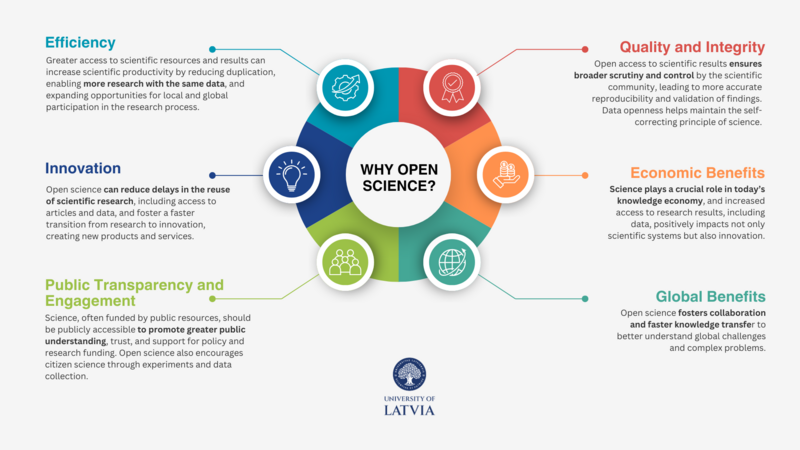The figure shows how open science promotes efficiency, quality, innovation, economic growth, global cooperation, and public engagement.
Open science means increased visibility and impact of work within the scientific community. Open access publications are cited more often, reach a wider audience, and promote interdisciplinary collaboration. Openly published research data increases the reproducibility and reliability of studies, which strengthens the reputation of scientists in the academic community.
Efficient resource use and data reuse save time and funding for new discoveries. An increasing number of funders require or prefer open science practices, so researchers who have already mastered these principles gain a competitive advantage in attracting funding.
As an academic institution, UL demonstrates its research excellence and social impact by promoting open science practices. This strengthens UL's reputation as a progressive and socially useful institution and raises its prestige in the academic community.
The introduction of open science facilitates compliance with the requirements set by funders, thus promoting the attraction of funding for research projects. UL can offer its expertise and infrastructure in international cooperation projects, strengthening the University's position in the global research environment.
Open access to knowledge and data accelerates progress in solving global problems, especially in areas such as public health, environmental protection, and social challenges. Society gains greater trust in the scientific process because it can better understand and even actively participate in research.
Since much of the research is funded by public money, open science ensures that these investments deliver maximum benefit to society. Taxpayers can access the research they have funded and see how their money is being used to advance science.

 CONFERENCE
CONFERENCE